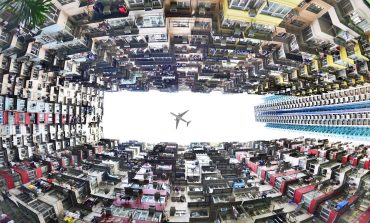Taiwan is reportedly planning to strengthen its chip export ban against China by expanding the coverage of the banned items to photomasks and some high-end materials.
The island’s Ministry of Economic Affairs has been drafting the second round of its chip export ban after it banned the export of 12 types of chip-making machines and parts that are capable of making 14-nanometer or smaller chips to mainland China on December 5, 2023, Commercial Times reported.
The ministry has in mind restricting the e port of locally-made photomasks, substrates and thin films to mainland China. This round of curbs would be approved by the government in March and implemented in the first half of this year.
Photomask is a silica plate covered with a pattern of opaque, transparent, and phase-shifting areas that are projected onto wafers in the lithography process. Substrate is the silicon wafer while thin film is the metal deposited on the wafer.
A spokesperson of the ministry said the government has not yet made any decision on the matter or set a timetable for the launch of the reported rules. The spokesperson said the government will consult people from different sectors to ensure that Taiwan’s key industries can maintain their advantages and continue to grow.
Taiwanese media reported earlier this month that the US Commerce Department will send officials to Taiwan in March to meet with the island’s chipmakers in Hsinchu and Tainan and explain to them about US chip export rules.
Impact on Taiwan’s firms
Last December, Taiwan’s National Science and Technology Council (NSTC) said it has banned exports to mainland China of know-how and raw materials that can be used to make chips smaller than 14nm.
It said the advanced chip-making technology is now one of 22 core technologies that Taiwan does not want Beijing to obtain.
Lien Ching-chang, director general of the Industrial Development Bureau, the Ministry of Economic Affairs, stressed at that time that the new export restrictions will not hurt TSMC’s businesses in China.
He said TSMC is mainly making 14-16nm chips in China and generating about 10-12% of its total revenue from the country.
TSMC has a foundry and its China bureau office in Shanghai and another foundry in Nanjing.
Some commentators said Taipei will try to limit the negative impact on Taiwanese firms while following the United States’ footsteps to impose chip export ban on China.
For example, if Taiwan’s next round of export bans covers photomasks, Taiwan Mask Corp will suffer as it ships products to China.
The company now produces photomasks that are used to make 65nm and 40nm chips. It said on its website that it is upgrading its production line to produce photomasks that can make 28nm chips.
To mass produce mid-end chips between 28 and 90nm, Chinese chip foundries need to use photomasks imported from the US, Japan and Taiwan.
This is because Chinese firms, such as Shenzhen Longtu Photomask Co and Wuxi Zhongwei Mask Electronics Co, can only make photomasks that produce 130nm chips.
An article published by 36kr.com said that Longtu Photomask only generated about 1.2% of its revenue from photomasks that are used to make 130nm chips in the first half of 2023. It said its major products were those making 180nm chips.
The author of the article said there is a huge gap between Chinese photomask makers and global players in terms of their market shares.
Japan’s Toppan, DNP and Hoya have global market shares of 31.4%, 22.9% and 5.7%, respectively, according to SEMI, a microelectronics industry association. The US firm Photronics has a 28.6% market share while Taiwan Mask Corp has 5.7%.
The remaining 5.7% market share is split among many other companies.
China’s catching up
Zhu Feng, director of the Institute of International Relations at Nanjing University, said in late January that people should recognize that the US is still leading China in high technology development.
He said US firms are still top-tier players while those from Europe, Japan and South Korea are the second-tier ones. He said Chinese companies, which are third-tier players, are trying to catch up.
In June 2022, Wuxi DIS Microelectronics Co Ltd, a wholly-owned unit of Chinese Resources Microelectronics Ltd, raised 620 million yuan (US$86 million) from local investors to build a new photomask production line. The facility, which can make photomasks that can be used to produce 28-90nm chips, will commence operation in the first half of this year.
China’s Semiconductor Manufacturing International Corp (SMIC) and Wuxi Zhongwei are also upgrading their photomask factories.
Read: Yet another US lawmaker group heading for Taiwan
Follow Jeff Pao on Twitter at @jeffpao3

